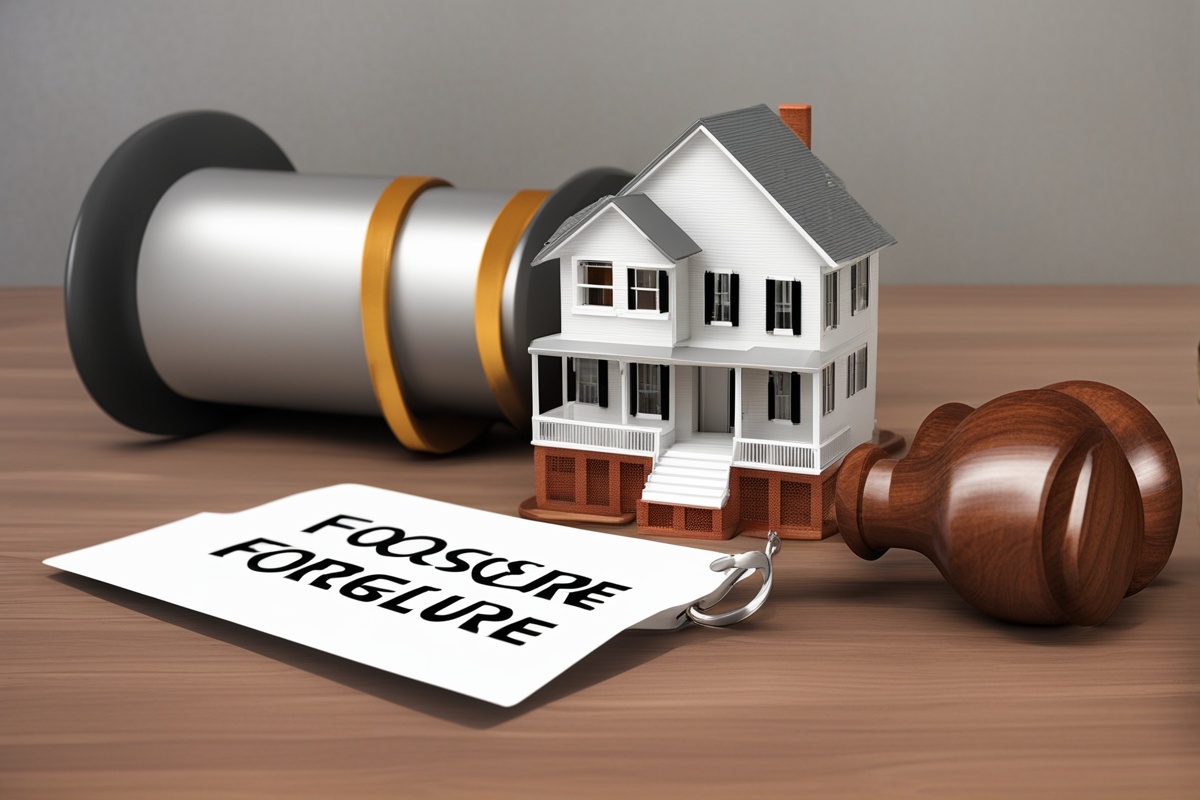Foreclosure can be an overwhelming and emotionally draining experience for homeowners. Facing the potential loss of a home is not just a financial setback but also a deeply personal challenge. However, there are ways to navigate this difficult situation through effective home loss solutions. By understanding the options available, such as foreclosure mediation, homeowners can find pathways to mitigate the impact of foreclosure and potentially save their homes. This comprehensive guide explores key strategies for navigating home loss solutions, offering actionable insights and resources to help you through the process.
Understanding Foreclosure and Its Impact
Foreclosure occurs when a homeowner fails to make mortgage payments, and the lender takes legal action to repossess the property. This process can have severe consequences, including damage to credit scores, loss of equity, and emotional distress. For many, the fear of losing a home can feel insurmountable, but understanding the foreclosure process is the first step in navigating home loss solutions. Knowing your rights and the timeline of foreclosure in your state can provide a clearer picture of what to expect and how to prepare. Resources like local housing counseling agencies or legal aid organizations can offer guidance tailored to your situation.
What Is Foreclosure Mediation?
Foreclosure mediation is a process where a neutral third party, known as a mediator, facilitates discussions between the homeowner and the lender to explore alternatives to foreclosure. This approach is designed to help both parties reach a mutually beneficial agreement, such as a loan modification, forbearance, or repayment plan. For those navigating home loss solutions, mediation can be a lifeline, providing a structured environment to negotiate terms and avoid the finality of losing a home. Many states have mandatory or voluntary mediation programs, so it’s essential to research the options available in your area. Learn more about how mediation works by exploring our detailed guide on the foreclosure mediation process.
Benefits of Pursuing Foreclosure Mediation
Engaging in foreclosure mediation offers several advantages for homeowners facing financial hardship. First, it provides an opportunity to communicate directly with the lender, often leading to more personalized solutions. Second, mediation can delay the foreclosure process, giving homeowners additional time to explore options. Finally, it can result in agreements that allow homeowners to stay in their homes under revised terms. For anyone navigating home loss solutions, mediation is often a less adversarial and more collaborative approach compared to litigation. To understand if mediation is right for you, check out our article on whether foreclosure mediation suits your needs.
Alternative Home Loss Solutions to Explore
While foreclosure mediation is a powerful tool, it’s not the only option for navigating home loss solutions. Homeowners can also consider other strategies, such as loan modifications, short sales, or deeds in lieu of foreclosure. A loan modification adjusts the terms of your mortgage to make payments more affordable, while a short sale allows you to sell the property for less than the owed amount with lender approval. A deed in lieu of foreclosure involves transferring ownership of the property to the lender to avoid formal foreclosure proceedings. Each option has its pros and cons, and consulting with a housing counselor can help you determine the best path forward. For more details on short sales, read our post on understanding short sales as a foreclosure alternative.
How to Prepare for Foreclosure Mediation
Preparation is key to a successful mediation session. Start by gathering all relevant financial documents, including income statements, bank records, and mortgage statements, to present a clear picture of your situation. It’s also helpful to outline your goals—whether it’s staying in the home or finding an amicable exit strategy. Working with a housing counselor or attorney can provide additional support in navigating home loss solutions through mediation. They can help you understand legal jargon, negotiate effectively, and ensure your rights are protected. For tips on working with a counselor, see our resource on finding the right housing counselor.
Emotional and Financial Support During Foreclosure
The stress of foreclosure extends beyond finances; it can take a significant emotional toll. Seeking support from family, friends, or mental health professionals can help you cope during this challenging time. Additionally, many nonprofit organizations offer free financial counseling and emergency assistance to homeowners navigating home loss solutions. Programs like the Homeownership Preservation Foundation provide hotlines and resources to guide you through the process. Don’t hesitate to reach out for help—taking proactive steps can make a significant difference. For a list of support resources, visit our page on foreclosure support resources.
Disclaimer: The information provided in this article is for general informational purposes only and should not be construed as legal or financial advice. Foreclosure laws and mediation processes vary by state and individual circumstances. We strongly recommend consulting with a qualified attorney, housing counselor, or financial advisor to discuss your specific situation before making any decisions related to foreclosure or home loss solutions. The authors and publishers of this content are not responsible for any actions taken based on the information provided herein.
References
- U.S. Department of Housing and Urban Development (HUD) – Avoiding Foreclosure
- Consumer Financial Protection Bureau (CFPB) – What is Foreclosure Mediation?
- Nolo – Foreclosure Mediation Programs: How They Work
- Federal Reserve – Foreclosure Resources for Consumers
- Homeownership Preservation Foundation – HOPE Hotline
This content is for informational purposes only and not a substitute for professional advice.





